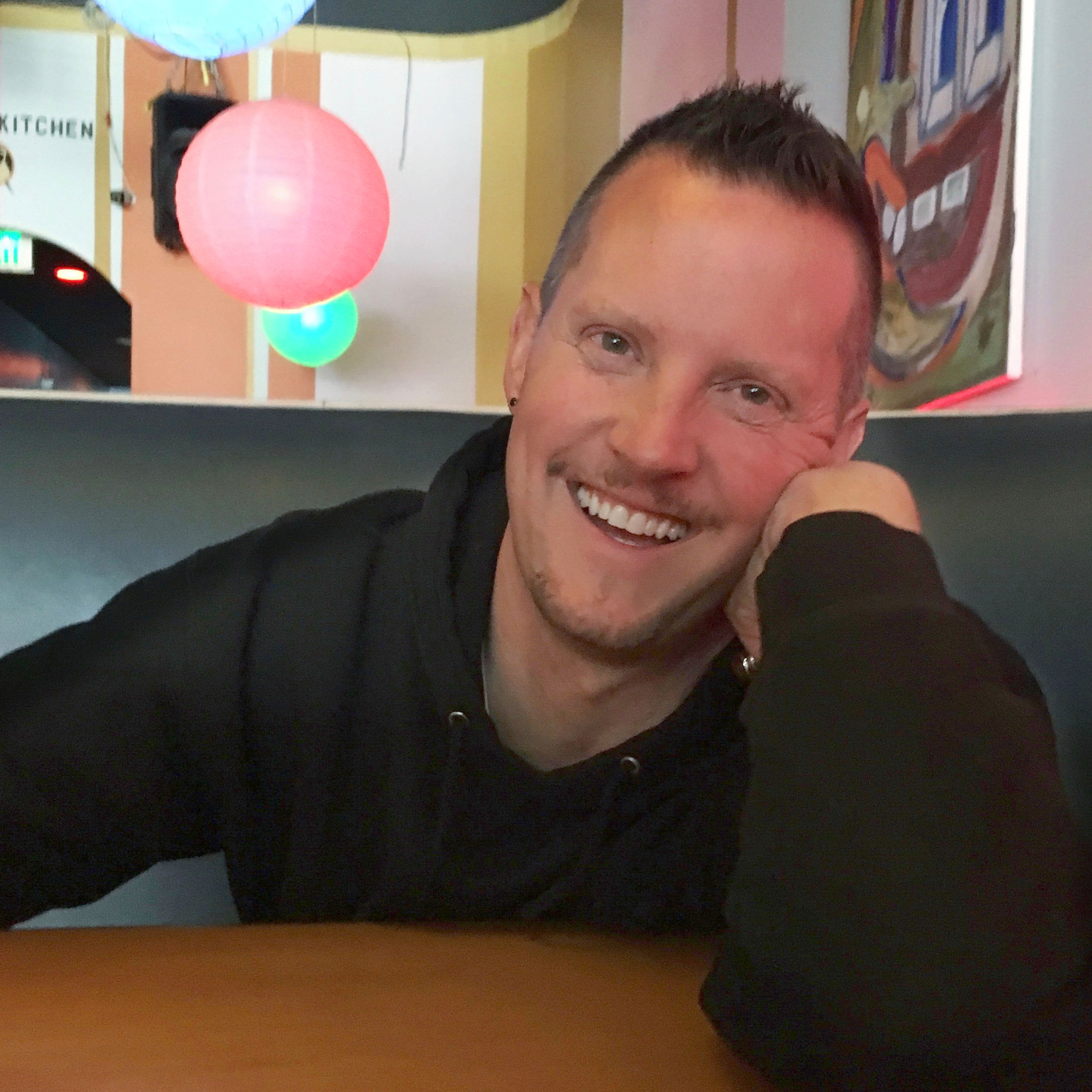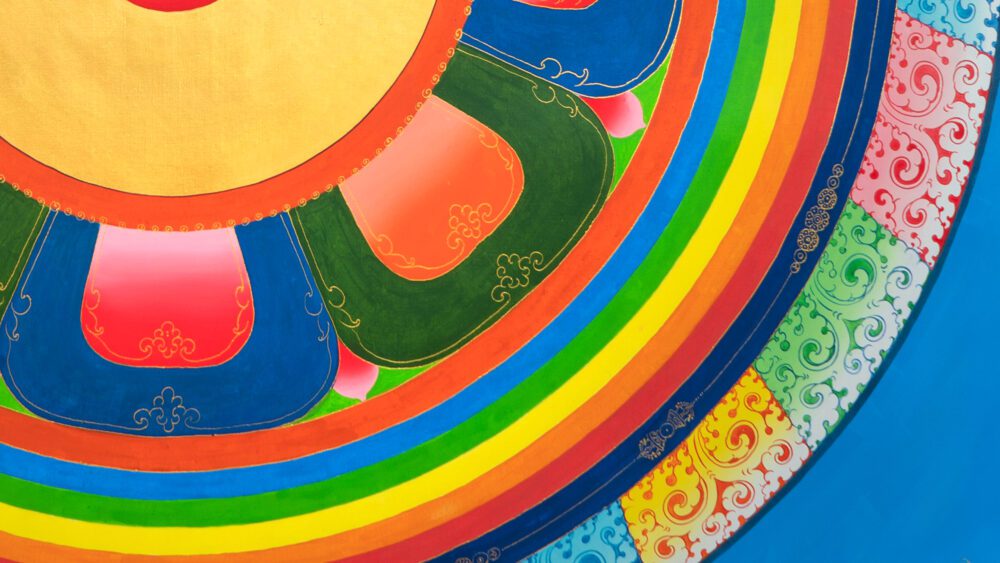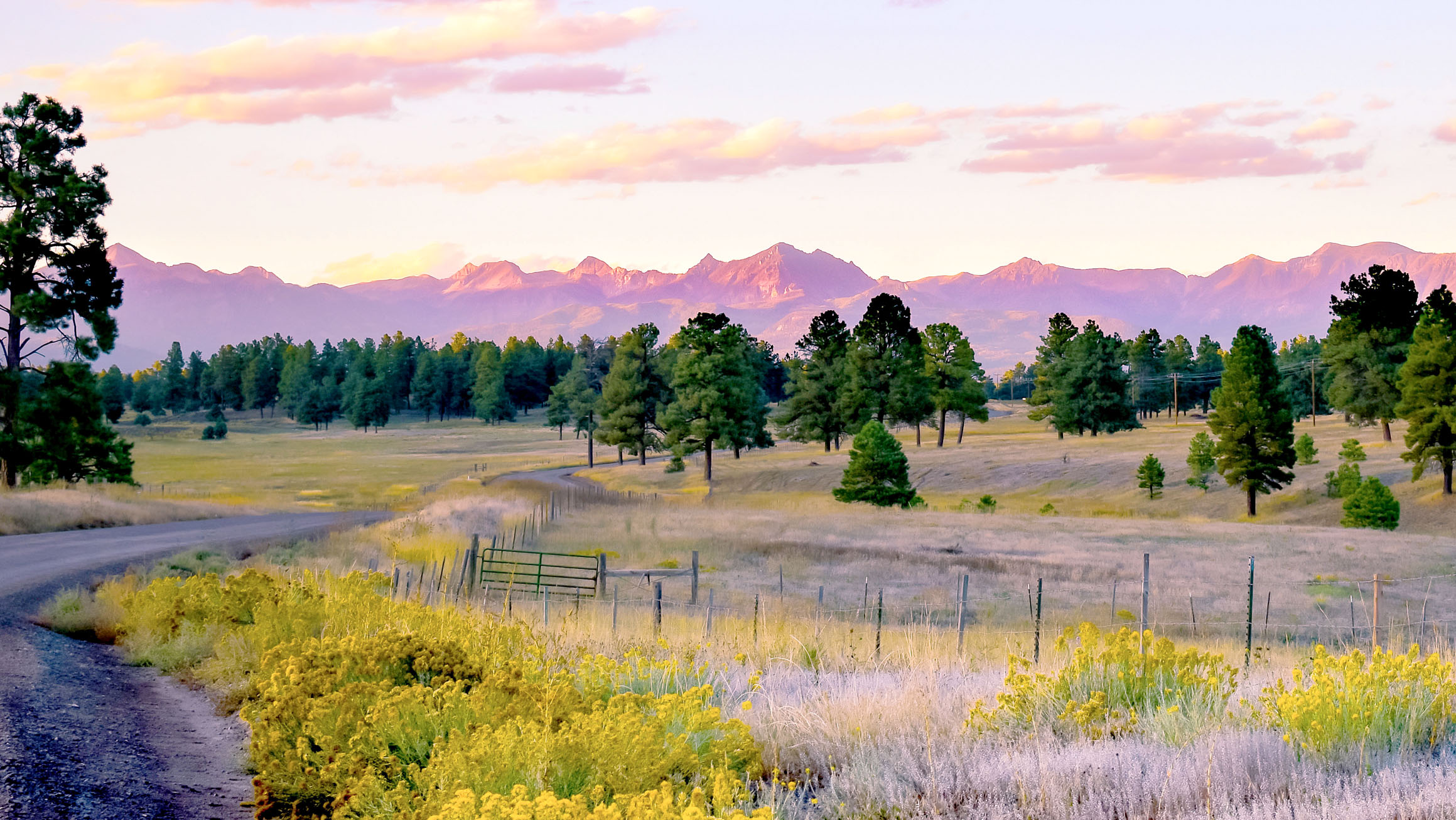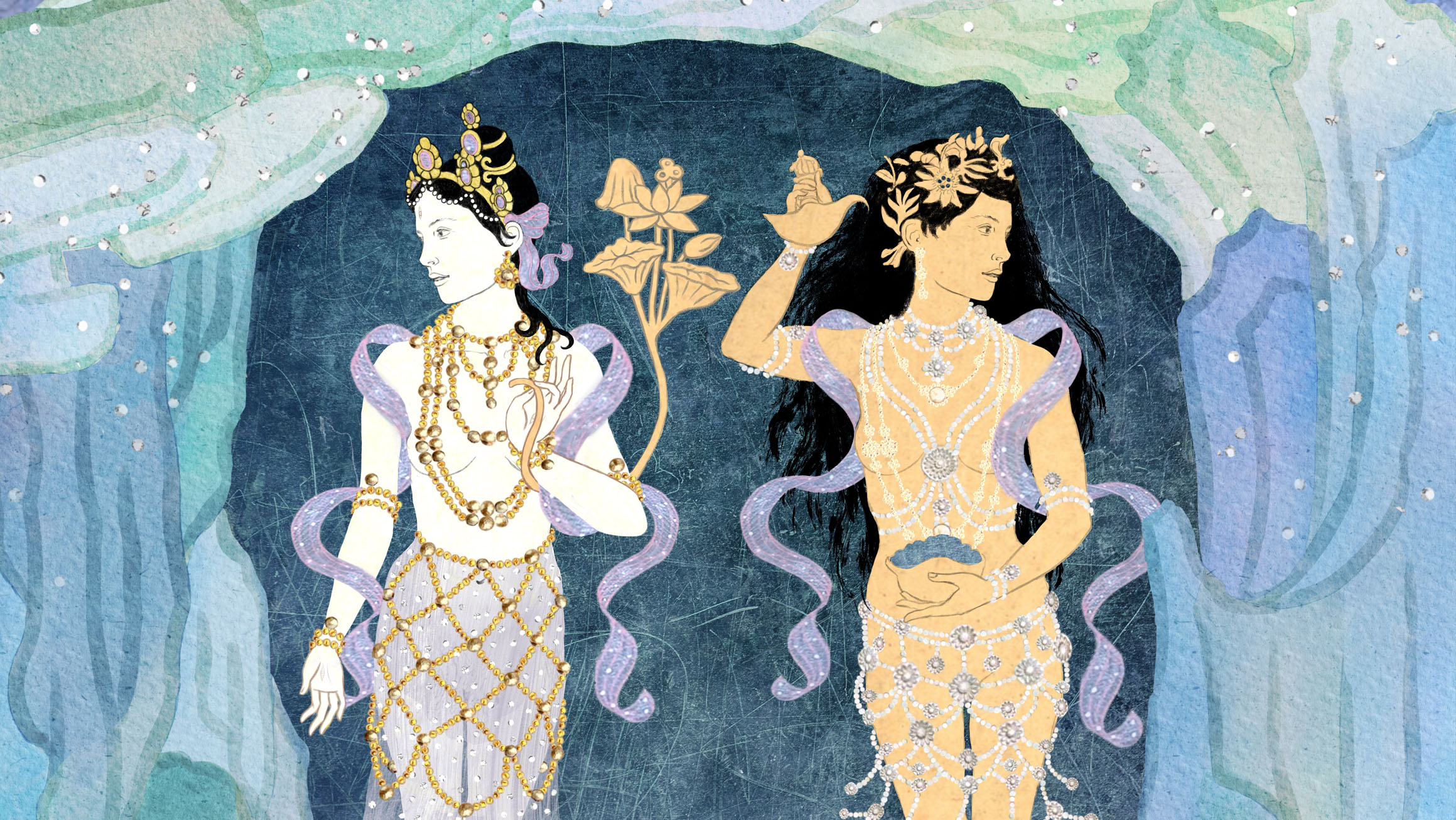Identity is always a precarious matter as a Buddhist practitioner, and identification with groups as a Buddhist is no less of a mixed bag. Arguably, even identifying as a “Buddhist” is un-Buddhist! But if we can recognize these labels and affiliations for what they are, identity can be one of our paths to freedom.
Early in my life, society’s view of queerness was a dramatic contribution to my delusion. As a child, and even more so as an adolescent, it had me create and adopt skewed views of body image, worthiness, sexuality, connection, family, and self-love that I took as Capital “T” Truths. How could I not? Surely, the world as I knew it (parents, relatives, teachers, pastors, friends, television, the neighbors, strangers) had this all handled, right? I had already learned the sacred, collective views, “fit in” and “be accepted” so I didn’t even contemplate that the world could be wrong about this “being gay” thing: I was not ok; I was not deserving of love; marriage was not something for people like me; I was less than…and so I better have a million perfect traits for when the world found out about my queerness.
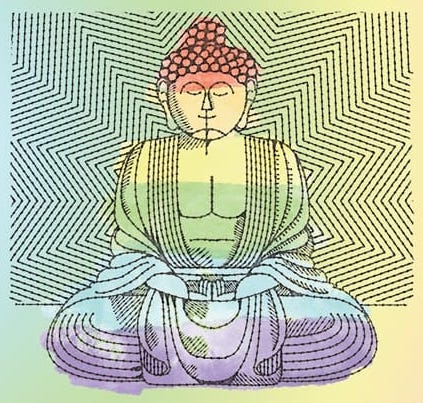
I took on a lot of views and made up just as many in those years. My reference point was always out there, and like all of us, I swallowed the delusions of childhood and adolescence and brought it raging into my adult life, relieved that all of “that” was behind me.
But there’s no “that.” There’s just this. And through my 20s and early 30s, I continued fitting new experiences into old, rigid constructs, struggling and confused, unaware that there was Truth outside of my mind’s perceptions of them, outside the stories and need for protection. But at this same time, I surrounded myself with other queer people, and for the first time since early childhood, I felt ok. I felt better than ok. I felt like I belonged on this planet––at least in this bar, or in this neighborhood––and that was a start. In finding a home in the LGBTQIA+ community, I was finally able to relax back into my self––ego and all. But it grounded me.
Feeling at home in our bodies and in our minds and hearts allows us to entertain the reality that we are more than these things, that life itself is our home. But when our created society, laws, rules and norms complicate life for groups of people, it moves that precious energy from awareness and stillness to physical, emotional and mental survival. Queerness jump-started my awareness of how perception and view were different from reality. Identity gave me a chance to breathe, and a chance to reflect. There was authenticity in this experience of being myself, and it bumped up against a collective truth.
So, then, what was Truth?
I had read some Buddhist books in college, along with books about Hinduism, Jainism, Satanism, and any other philosophies I could dip into to expand beyond my Lutheran roots and confines; the wilder, the better! I meditated here and there, enough to “look cool” and feel different. Now, I reveled in difference. I had traded “excluded” in one group for “included” in another, and I wasn’t going back. But inherent in both experiences was separateness.
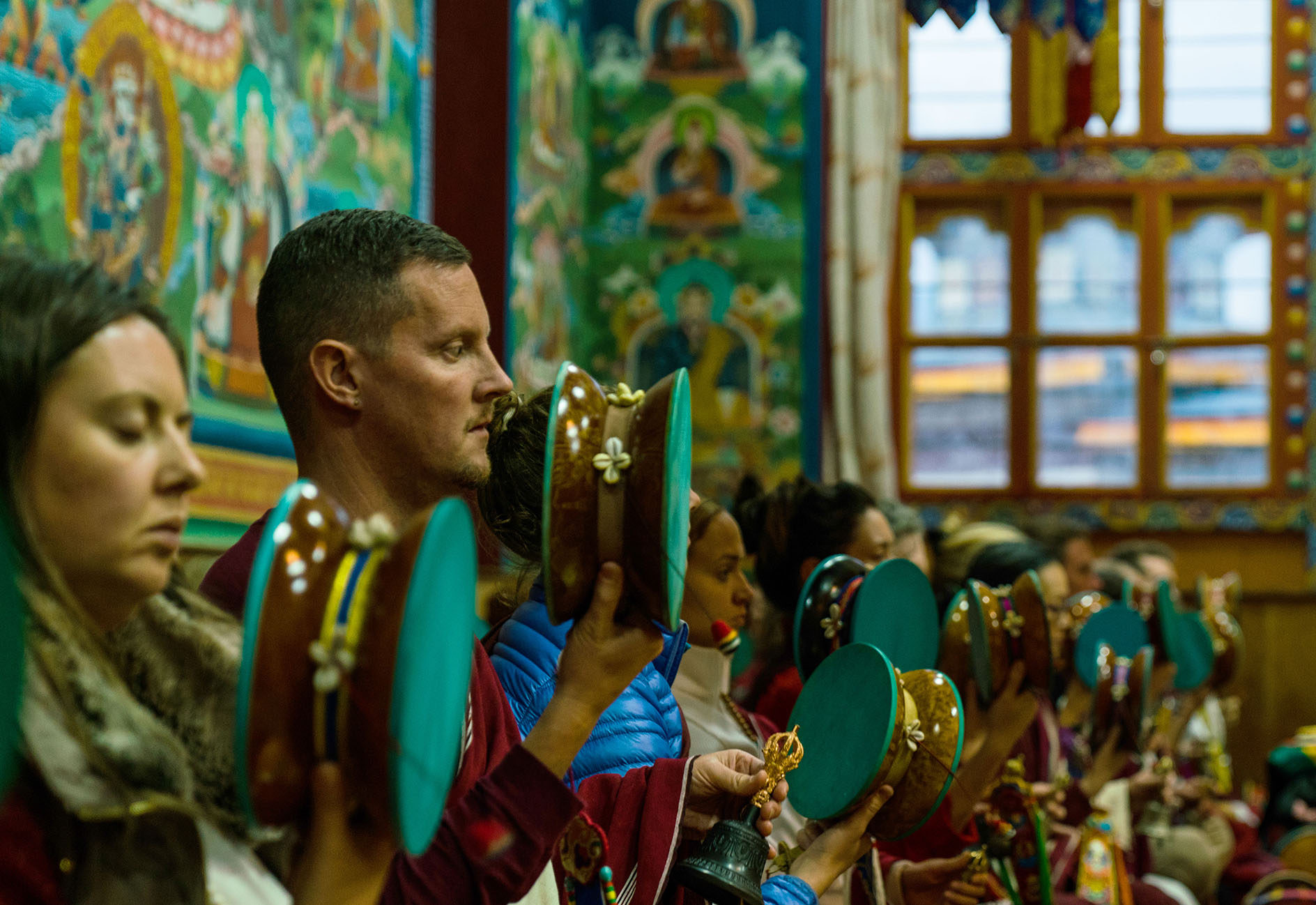
In my mid 30s, my mother passed away, and this truly was the turning point in my life, a brutal, beautiful glimpse behind the veil. I began to see life itself––my life––as the teacher, perfect and imperfect all at once. An urgency descended. Awareness expanded. Views fell away. In the midst of tragedy, the universe offered consolation prizes.
A few years later, in my early 40s, I moved to Chattanooga, Tennessee with my husband and joined a small sangha called Tara Mandala. There were about 6-8 of us that practiced regularly, and it was there that I found a community devoted to meditation and to uncovering the Truth about who we are. It was a homecoming. Simple and challenging, it felt known and unknown. It was indescribable. It was Tibetan! I had found a community in which to continue my exploration of what I really was. My reference point had moved inside.
Now, in my 50s, I’m less concerned, personally, with identity, but more curious than ever about all the ways awareness manifests in humans in this world. Does it mean I don’t celebrate Pride anymore? Oh, hell no! Who would miss Pride? It’s one of the most authentic, liberating, accepting, affirming, audacious celebrations in the world. I’ll celebrate the gift of queerness until my last breath. But, now, I’ll do it from a place of freedom, from a place of feeling at home anywhere and with anyone, for the pure sake of being, with no reference point at all.
So, what’s there for you to do in this month of Pride, as a human who’s queer, non-queer or whatever you happen to be or identify as?
- Celebrate beings in all shapes, sizes, colors, and manifestations.
- Celebrate what it means to love authentically from your way of being, and from ways of being you will not have in this lifetime.
- Celebrate that each of us is born into a particular view and that by exploring and questioning that view, we open to others. In this contrast, we encounter the view itself, recognizing the limited “view-ness” of ALL views.
- Celebrate progress as humans, that we are having dialogues about the beauty of difference which ultimately (hopefully) brings us to the conversations about, and realizations of, connection, inter-dependence, and unity.
- Celebrate the lives of those who have gone before us that have amplified the experience of queer humans in this world. That gift liberates us all.
- Get real about the actual physical and mental pain and fear that millions of people feel every day, simply because other humans’ views and identities don’t like, allow for, or get challenged by the existence of queerness in our world.
- Get real about how your thoughts, words and actions contribute to a world where others feel disconnected, unseen, and trapped.
- Align to a world that holds oneness as the reality it is. Root out old views. Educate yourself about pronouns.
- Start early. Talk with kids about diversity, about all the ways humans manifest in this world, and empower them to be themselves, fully. As parents, be aware that your connection to your kids and your love is what matters most. Don’t assume they know – tell them you love them no matter what, over and over…and mean it.
About Jason Gruhl
Jason Gruhl is an author and psychotherapist for children and adults. He is the former Executive Director and Founder of The Joshua School (a school for children with Autism Spectrum Disorders and Developmental Disabilities in Boulder and Denver, Colorado), and an adjunct Professor at Naropa University in the Mindfulness-Based Counseling program. When not writing, Jason is addicted to scones, board games, reading, and watching sci-fi movies. He is a practitioner with the Tara Mandala sangha in Boulder, Colorado and with the Buddha Eye Zen Community in Eugene, Oregon.
www.jasongruhl.com
